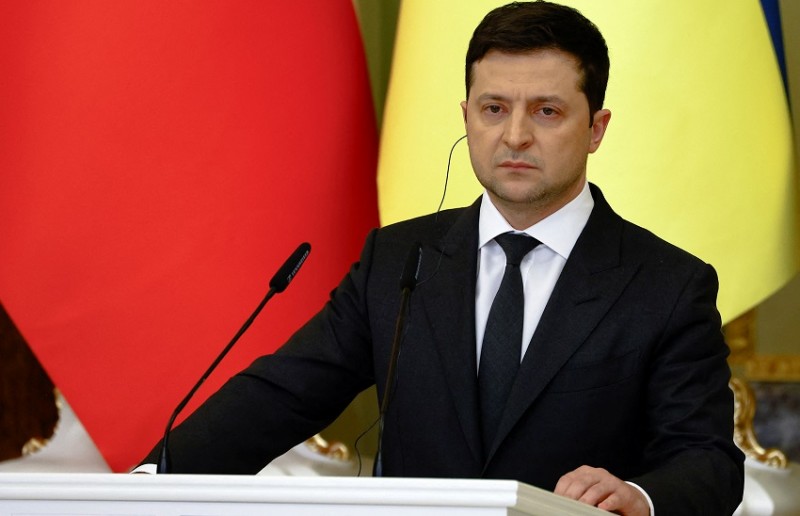
Ukrainian President Volodymyr Zelenskiy appealed to allies at a global security conference on Saturday to address an "artificial" scarcity of weapons that is bolstering Russia's military advantage on the battlefield.
Speaking to a gathering of politicians, diplomats, and military officials from various nations, Zelenskiy expressed gratitude for the support offered by Western countries while calling for further assistance. He emphasized the critical moment of Russia's ongoing invasion of Ukraine, now approaching its third year, during which Ukrainian troops have been compelled to retreat from the heavily affected eastern town of Avdiivka.
The Ukrainian president highlighted acute shortages of ammunition in Ukraine, noting that U.S. military aid has faced delays in Congress for several months. Zelenskiy underscored the detrimental impact of maintaining Ukraine in a state of weapon deficiency, particularly in terms of artillery and long-range capabilities, which he argued enables Putin to adapt to the evolving intensity of the conflict.
Zelenskiy urged allies to prioritize sending additional weapons and air defenses to Ukraine, emphasizing the significance of closing the gap in military capabilities. He illustrated the disparity in artillery range between Ukraine and Russia as a key factor influencing the conflict dynamics.
Earlier in the conference, referred to as the "Davos of Defence," German Chancellor Olaf Scholz avoided directly addressing inquiries about providing long-range Taurus missiles to Kyiv. However, Scholz urged other European nations to match Germany's commitment to increasing military assistance for Ukraine and to invest in bolstering its defense capabilities.
The Munich Security Conference convened amid growing concerns in Europe regarding the U.S. commitment to assisting Ukraine against Russia's aggression and defending allies more broadly, particularly with the possibility of Donald Trump returning to the White House. Trump's stance on defending NATO allies who fail to meet defense spending targets has stirred apprehension among some leaders.
However, outgoing Dutch Prime Minister Mark Rutte urged against fixating on Trump's potential return, emphasizing the importance of focusing on strengthening defense capabilities regardless of U.S. political developments. Rutte stressed the need for collaboration with current political realities and highlighted the necessity for European countries to increase defense spending and ammunition production independently of U.S. influence.
Despite disagreements and uncertainties, Scholz affirmed Germany's commitment to meeting NATO defense spending targets and engaging in discussions with allies to develop advanced precision weapons. He rejected any attempts to undermine NATO's defense clause and emphasized the enduring strength of the transatlantic bond.
NATO Secretary-General Jens Stoltenberg reiterated the importance of unity within the alliance and cautioned against discussions of European defense autonomy, particularly regarding the creation of a European nuclear deterrent separate from U.S. involvement.
During the conference's first day, U.S. Vice President Kamala Harris reaffirmed the Biden administration's unwavering commitment to NATO and pledged continued efforts to assist Ukraine in securing necessary weapons and resources, emphasizing the enduring partnership between the United States and Europe in addressing shared security challenges.
Ukrainian Forces Retreat from Avdiivka Amid Russian Advance
Putin Prefers Biden Over Trump, Citing Experience and Predictability
Bearing the Burden: Stories of Wounded Warriors in Russia's War